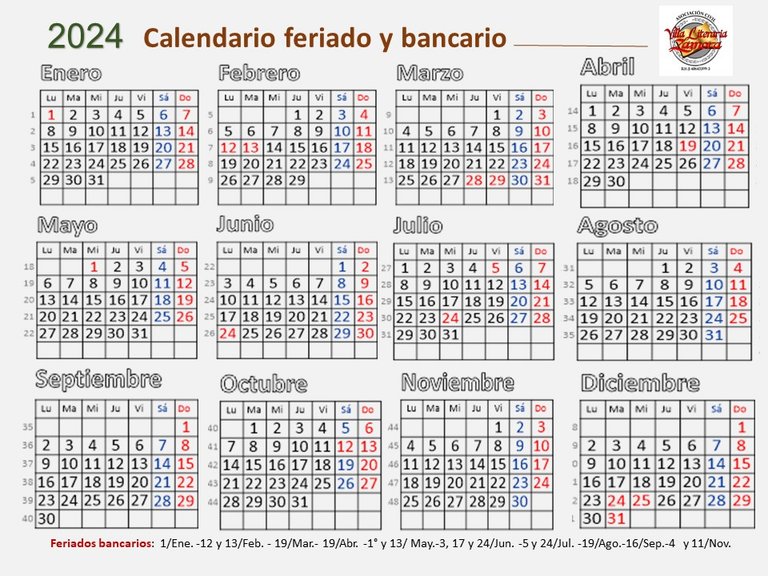
Calendario 2024.
Si pudiéramos viajar en el tiempo y escogiéramos de manera inconsciente como fecha de parada cualquier día entre el 4 y el 15 de octubre de 1582, caeríamos en un extraño vacío; quizás los instrumentos de medición de nuestra hipotética nave quedarían dando vueltas sin señalar computo alguno para seguir las instrucciones del programa de navegación. En términos coloquiales, se volverían locos o, para decirlo con cierta imagen animada: quedarían “como bachaco sin antenas”. Sin embargo, la explicación es bastante sencilla y un experto viajero del tiempo no cometería ese error. ¿Por qué decimos esto?
Por la simple razón de que en ese año el papa Gregorio XIII, asesorado por astrónomos, en particular por el astrónomo y filósofo Sosígenes, decretó por la bula Inter gravissimas que el jueves, 4 de octubre de 1582 sería inmediatamente seguido del viernes 15 de octubre para compensar la diferencia acumulada a lo largo de los siglos entre el calendario juliano y las efemérides astronómicas. Antes, los sucesos se registraban según el calendario juliano que, como su nombre lo indica, fue instaurado por Julio César en el año 46 a. C (a. E. C.) y que básicamente es una copia del calendario egipcio, el primer calendario solar conocido que estableció la duración del año en 365,25 días. Otros pueblos de la antigüedad medían los años mediante calendarios lunares.
De manera que, a partir de 1582, el calendario gregoriano sustituyó gradualmente en distintos países al calendario juliano. Un insólito cambio de hegemonía. El nuevo calendario – obvio- fue adoptado inmediatamente por los estados católicos europeos, sobre todo en España, Italia, Polonia y Portugal; siendo el rey Felipe II el auténtico impulsor de este calendario, según Wikipedia.
Así tenemos que Los nombres y número de días que conforman los meses de nuestro calendario fueron heredados del calendario romano o juliano, elaborado por el emperador Julio César.
En consecuencia, en nuestro viaje en el tiempo, no pudimos encontrar efemérides para el día 14 de octubre de 1582, pero sí para otras fechas importantes que nos llevaría mucho espacio enumerar. Solo quiero señalar dos que me llamaron la atención:
- En Caracas, Simón Bolívar es proclamado Capitán General de los ejércitos de Venezuela y Libertador, al terminar exitosamente la Campaña Admirable.
También, un día como hoy en 1964, Martin Luther King ganó el Premio Nobel de La Paz. Y, entre otras cosas, este día incluye la celebración de la semana mundial de la novela, que este año abarca del 13 al 20 de octubre de 2024.
Espero que les haya gustado este breve e insólito viaje en el tiempo.
Argenis Díaz
@rayuela 2.


Calendar 2024.
A leap in the calendars (regarding October 14).
If we could travel in time and unconsciously chose as a stop date any day between October 4 and 15, 1582, we would fall into a strange void; perhaps the measuring instruments of our hypothetical ship would remain spinning without indicating any computation to follow the instructions of the navigation program. In colloquial terms, they would go crazy or, to put it with a certain animated image: they would be “like a bachaco without antennas.” However, the explanation is quite simple and an expert time traveler would not make that mistake. Why do we say this? For the simple reason that in that year Pope Gregory XIII, advised by astronomers, in particular by the astronomer and philosopher Sosigenes, decreed by the bull Inter gravissimas that Thursday, October 4, 1582 would be immediately followed by Friday, October 15, to compensate for the difference accumulated over the centuries between the Julian calendar and the astronomical anniversaries. Before, events were recorded according to the Julian calendar, which, as its name indicates, was established by Julius Caesar in 46 BC (BCE) and is basically a copy of the Egyptian calendar, the first known solar calendar that established the length of the year at 365.25 days. Other ancient peoples measured the years using lunar calendars.
Thus, from 1582 onwards, the Gregorian calendar gradually replaced the Julian calendar in different countries. An unusual change of hegemony. The new calendar – obviously – was immediately adopted by the European Catholic states, especially in Spain, Italy, Poland and Portugal; King Philip II being the true promoter of this calendar, according to Wikipedia.
Thus we have that The names and number of days that make up the months of our calendar were inherited from the Roman or Julian calendar, created by Emperor Julius Caesar.
Consequently, in our journey through time, we could not find anniversaries for October 14, 1582, but we could find them for other important dates that would take too much space to list. I just want to point out two that caught my attention:
- In Caracas, Simon Bolivar is proclaimed Captain General of the Venezuelan armies and Liberator, after successfully completing the Admirable Campaign.
Also, on a day like today in 1964, Martin Luther King won the Nobel Peace Prize. And, among other things, this day includes the celebration of World Novel Week, which this year runs from October 13 to 20, 2024.
I hope you enjoyed this brief and unusual journey through time.
Argenis Díaz
@rayuela2


The text in Spanish was created without AI
El texto en castellano fue creado sin IA
The text in English I translated it with / El texto en ingles lo traduje ayudándome con
Traductor Google.



